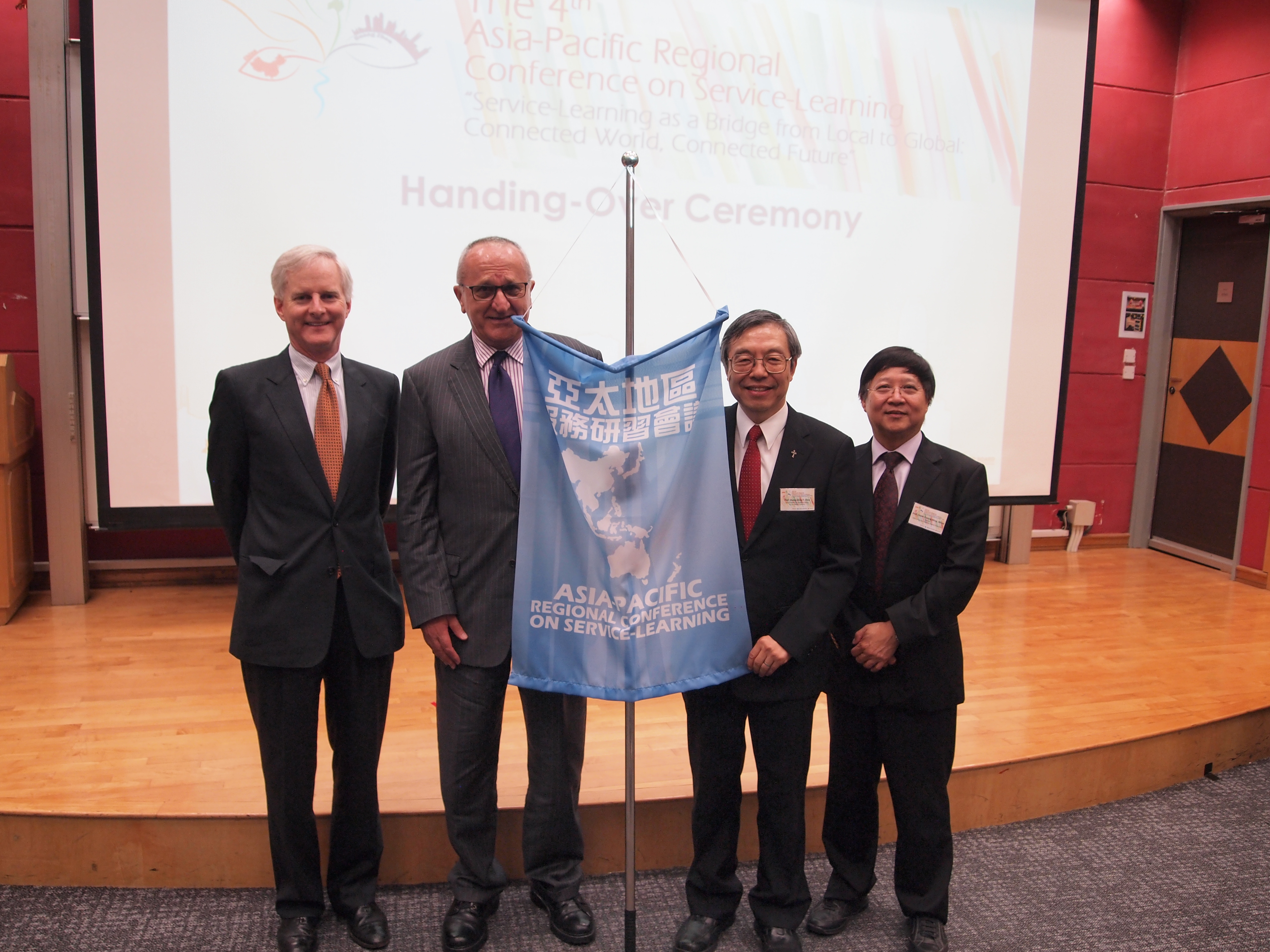Location
MD202, Paul Cardinal Shen Medical Building, Fu Jen University
Start Date
29-5-2015 10:40 AM
End Date
29-5-2015 11:50 AM
Description
Service-learning (S-L) in Silliman University started since 2002. After more than a decade, S-L is integrated at the College of Computer Studies. This paper describes the pilot program of an S-L integration in the College of Computer Studies (CCS), Silliman University. The program was conducted to strengthen the community extension through S-L integration in On-the-Job training and internship classes of CCS. It is specially designed to offer ICT literacy training to community partners where students serves as service -learners. The project also aimed at exploring the use of Web as a tool in writing S-L reflection and in the evaluation. Most importantly. The project designed to evaluate the extent of success of the program as perceived by the partner community and the service learners.
Twenty-nine (29) students were identified as service learners. On the other hand, twenty-two (22) safety personnel of the Silliman University Public Assistance and Safety Office were chosen as the partner community and considered as trainees. The training commenced on July 1, 2013 and ended on September 23, 2013 with a total of 8 laboratory meetings. The literacy training course is designed for learners who have no knowledge in using computers. It covers concepts and skills aimed at providing literacy about computers, office productivity tools, Internet, communication and collaboration tools. Reflections and evaluations are paperless. Students submitted and published their reflection in a blog site which was developed using Weebly. Two evaluation tools were used to measure the extent of success of the S-L activity. Evaluation process is also done on the Web using Google Form.
It is concluded that the extent of success of the S-L activity is very high. All service-learners were rated excellent by the partner community. The success levels of the training in terms of the trainees’ behavior, learning, reaction, and results of the training are also excellent. It was recommended that the program must be replicated not only in Silliman University but as well as to the other Computer Studies schools in the Philippines and other neighboring countries.
Recommended Citation
Marcial, D., & Te, J. M. (2015, May). ICT literacy in the community: A service-learning integration in the intership program of the College of Computer Studies, Silliman University. Paper presented at the 5th Asia-Pacific Regional Conference on Service-Learning: Love Journey: Community Engagement through Service-Learning, Fu Jen Catholic University, Taiwan.
Included in
ICT literacy in the community : a service-learning integration in the intership program of the College of Computer Studies, Silliman University
MD202, Paul Cardinal Shen Medical Building, Fu Jen University
Service-learning (S-L) in Silliman University started since 2002. After more than a decade, S-L is integrated at the College of Computer Studies. This paper describes the pilot program of an S-L integration in the College of Computer Studies (CCS), Silliman University. The program was conducted to strengthen the community extension through S-L integration in On-the-Job training and internship classes of CCS. It is specially designed to offer ICT literacy training to community partners where students serves as service -learners. The project also aimed at exploring the use of Web as a tool in writing S-L reflection and in the evaluation. Most importantly. The project designed to evaluate the extent of success of the program as perceived by the partner community and the service learners.
Twenty-nine (29) students were identified as service learners. On the other hand, twenty-two (22) safety personnel of the Silliman University Public Assistance and Safety Office were chosen as the partner community and considered as trainees. The training commenced on July 1, 2013 and ended on September 23, 2013 with a total of 8 laboratory meetings. The literacy training course is designed for learners who have no knowledge in using computers. It covers concepts and skills aimed at providing literacy about computers, office productivity tools, Internet, communication and collaboration tools. Reflections and evaluations are paperless. Students submitted and published their reflection in a blog site which was developed using Weebly. Two evaluation tools were used to measure the extent of success of the S-L activity. Evaluation process is also done on the Web using Google Form.
It is concluded that the extent of success of the S-L activity is very high. All service-learners were rated excellent by the partner community. The success levels of the training in terms of the trainees’ behavior, learning, reaction, and results of the training are also excellent. It was recommended that the program must be replicated not only in Silliman University but as well as to the other Computer Studies schools in the Philippines and other neighboring countries.
